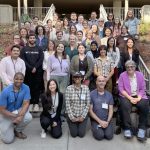Home / News /
Via the Seattle Children’s Autism Blog.

Brett Niessen, senior health educator and University of Washington adjunct faculty, shares his insights on supporting children and youth with intellectual and developmental disabilities in understanding their bodies, relationships, and boundaries. This second part of our series addresses consent, healthy relationships, and sexual safety, building on the foundations of sexual health education covered in Part 1.
Brett discusses the unique challenges autistic youth may face when it comes to consent and boundaries, and offers practical advice on how to communicate these complex topics in a way that’s clear and accessible. Whether it’s using social stories or role-playing conversations, these strategies can empower youth to build healthy relationships and recognize unsafe situations.
From navigating dating to understanding personal boundaries, Brett highlights key strategies and resources for parents to help their children develop healthy relationships and recognize unsafe situations. Read the full story on the Seattle Children’s Autism Blog.


